Fall 2023 News and Updates: Lifting Our State Economy While Filling Community and Research Needs
Stay up to date on how the NC State College of Veterinary Medicine is leading the way in solving problems, exploring innovations and changing lives in animal and human medicine and in our community.
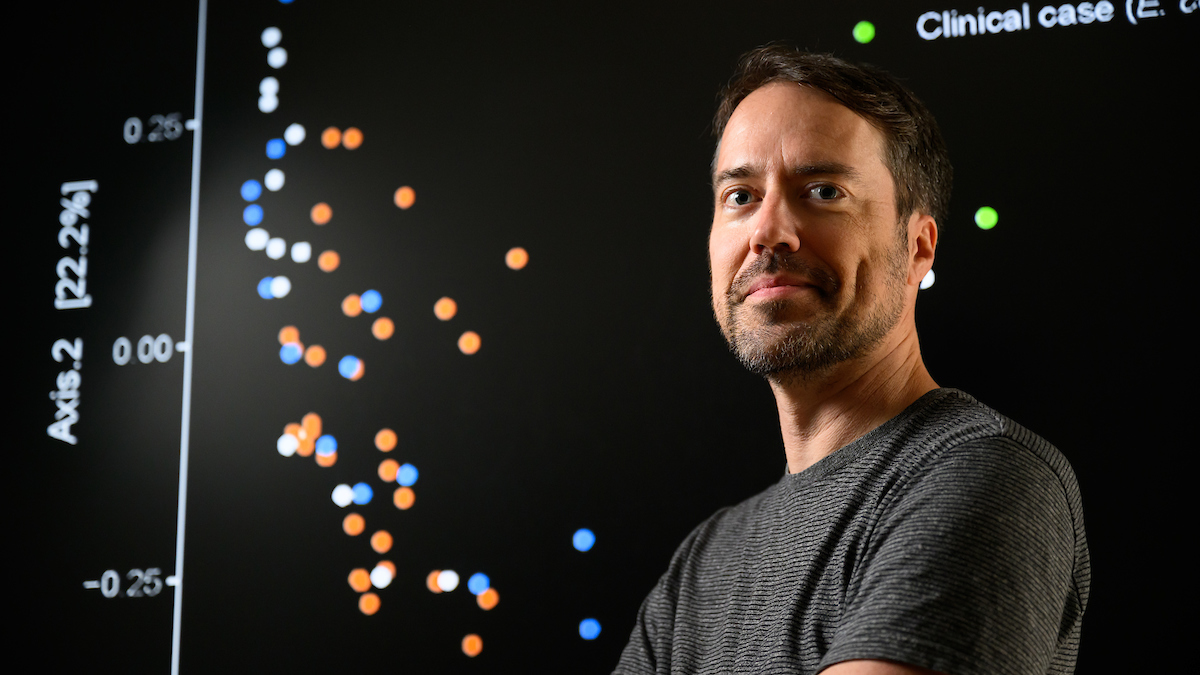
In the Spotlight
DOLLARS IN, EXCELLENCE OUT. In the 40 years since the NC State College of Veterinary Medicine dedicated its main facility, the college has been repaying the state’s continuing investment by becoming a generator of graduates schooled in the latest cutting-edge care and a hub of transformative research into animal and translational medicine.
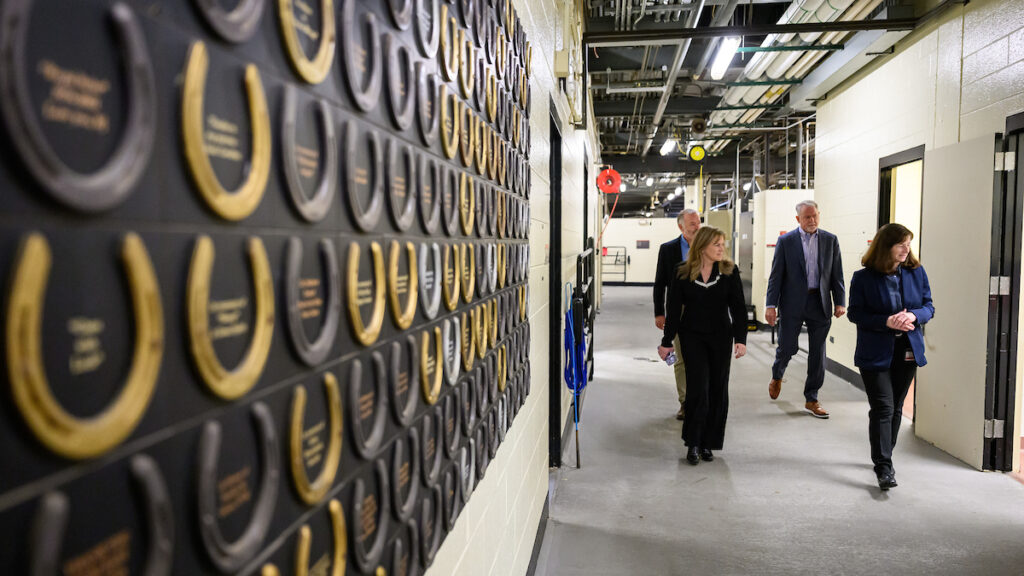
OUR NEWEST PARTNERS. Dean Kate Meurs welcomed members of her recently created Industry Advisory Council to campus in November, ushering in a new emphasis on developing and strengthening partnerships as part of the college’s new strategic plan. The newest members of our One CVM Community are Dr. Dottie Cimino Brown, chief scientific officer at Mars Veterinary Health; Dr. Kate Christmas, director of strategic partnering at Boehringer Ingelheim Animal Health; Dr. Stuart Fitzgerald, chief scientific officer at TriviumVet; and Dr. Mike McFarland, executive vice president and chief medical officer at Zoetis.
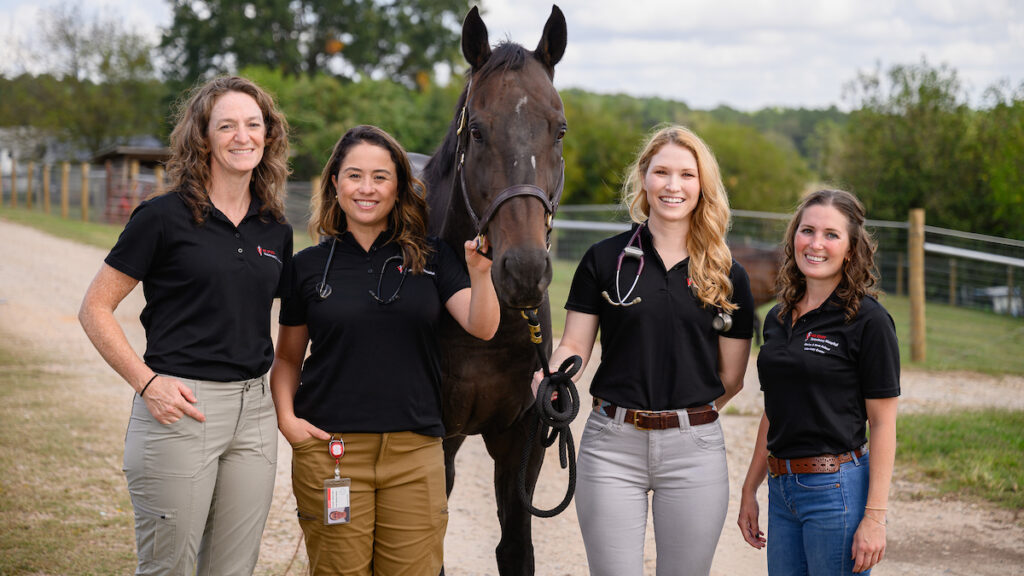
A GALLOPING SUCCESS. By all accounts, the pilot Ambulatory Equine Emergency Service that the College of Veterinary Medicine began offering in July has been a mission-fulfilling marvel. The service is addressing a desperate community need by supporting area equine practices, increasing emergency medical experience for veterinary students and proving that a subscription-based financial model is viable enough to possibly expand the critical service later.
go.ncsu.edu/mobileequineservice
FOCUS ON FOOD. Just 3.9% of U.S. veterinarians practice food animal medicine, but these providers are essential to keeping the country’s food supply healthy, safe and abundant. The College of Veterinary Medicine’s Food Animal Scholars program helps NC State and NC A&T undergraduate students forge pathways into this specialization. “Being a Food Animal Scholar allowed me to go out and experience what real-world medicine looked like,” says Dr. Andrea Gentry-Apple, a program alumna and current mentor to interested pre-vet students.
go.ncsu.edu/food-animal-scholars
MAKING MAGIC. In an intricate study, two NC State veterinary internists showed that a cat’s gallbladder doesn’t have its own microbiome, an important discovery for treating a common inflammatory liver disease. But they couldn’t have done it without a third professor, an expert in bioinformatics, who was brought to the NC State College of Veterinary Medicine as part of a university cluster hire. Science is a team sport at NC State these days.
$70 MILLION APPROPRIATION. State lawmakers approved $70 million for expanding and renovating the college’s Large Animal Hospital to include a new Equine Veterinary Center to better serve horses and livestock. The latest budget also included money to increase the number of students the college can accept in each veterinary class, addressing a vet shortage that will help the NC livestock industry. “We are so grateful for the support of the state of North Carolina as we move forward with this important construction project,” Dean Kate Meurs says.
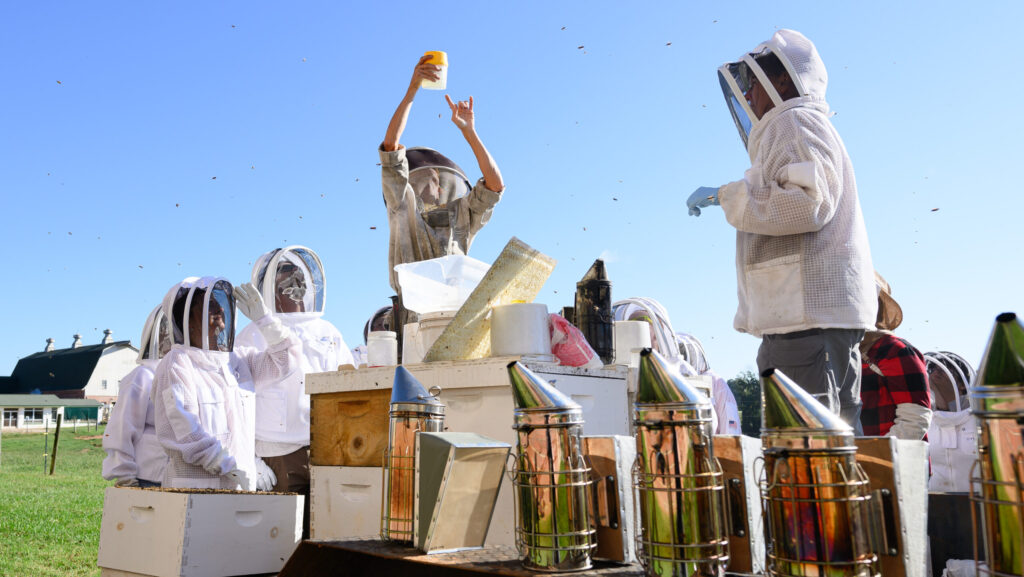
THE BUZZ ON BEES. The NC State College of Veterinary Medicine hosted the national Honey Bee Veterinary Consortium’s annual conference in October, welcoming more than 100 bee lovers to campus for lectures and hands-on labs. The FDA classified honey bees as food animals in 2017, placing veterinarians in charge of overseeing the antimicrobials used in bee treatment. “As veterinarians, we are now an integral part of this, but there are so few people willing to see bees,” one attendee says.
go.ncsu.edu/honeybeeconsortium
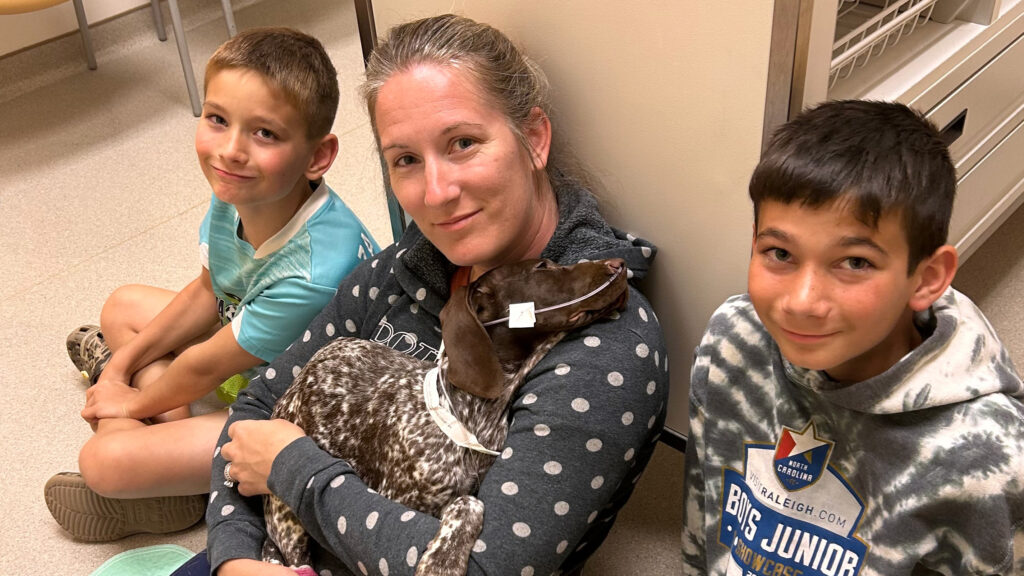
HOPE FOR HOLLEN: German shorthaired pointer Hollen was just 10 weeks old when an encounter with another dog left her with a traumatic brain injury. NC State nursed Hollen through a craniotomy and a sodium syndrome so rare, her veterinarians say there are no other documented cases in dogs. Thanks to them, Hollen is bounding into a life of beach trips, pup cups and endless cuddles with her family. “I was just blown away by NC State’s vet teams,” her owner says. “We’d have trusted them to operate on one of us!”
NO HOGWASH. Supported by a USDA grant, College of Veterinary Medicine researchers are studying the role unclean vehicles might have in transmitting a deadly swine coronavirus and recommending the best sanitization methods to keep this virus, and others with more devastating effects, from spreading. “We’re impacting the whole health of the herd,” one researcher says.
Faculty and Staff
ON THE MOVE. Dr. Anthony Blikslager, who had been serving as interim associate dean and director of Veterinary Medical Services, accepted the position on a permanent basis. He formerly was the head of the Department of Clinical Sciences. “Our hospital is second-to-none when it comes to compassionate and cutting-edge care, and I am extraordinarily proud to be in this position,” he says.
go.ncsu.edu/veterinaryhospitaldirector
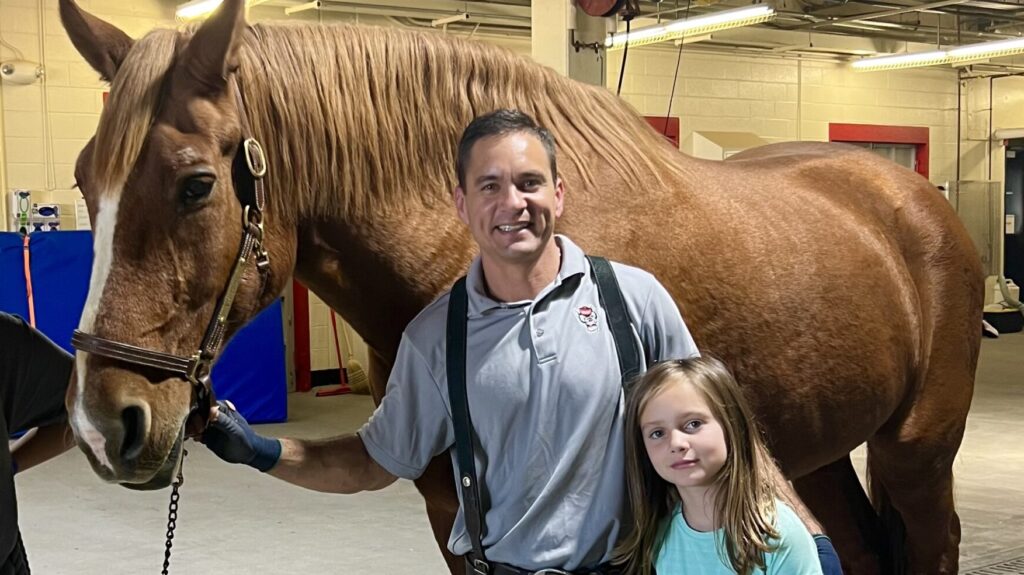
A COUP IN CARE. Emphasizing our focus on patient-centered care, the NC State College of Veterinary Medicine recruited Dr. Raul Bras, a world-renowned equine podiatrist, to join our industry-leading equine team. “This just underscores how NC State is truly a world-class veterinary institution,” says Dr. Anthony Blikslager, associate dean and director of Veterinary Medical Services. “If you had an astronaut program, this would be like landing Neil Armstrong.”
CARE FOR CAREGIVERS. NC State provides world-class care for every pet that comes to our Veterinary Hospital. But who looks after these animals’ caregivers in return? Rebecca Maher and Morgan Josey, clinical social workers with the hospital’s Family and Community Services team, help pet owners, veterinarians and students navigate complex emotions around animal illness, treatment and death.
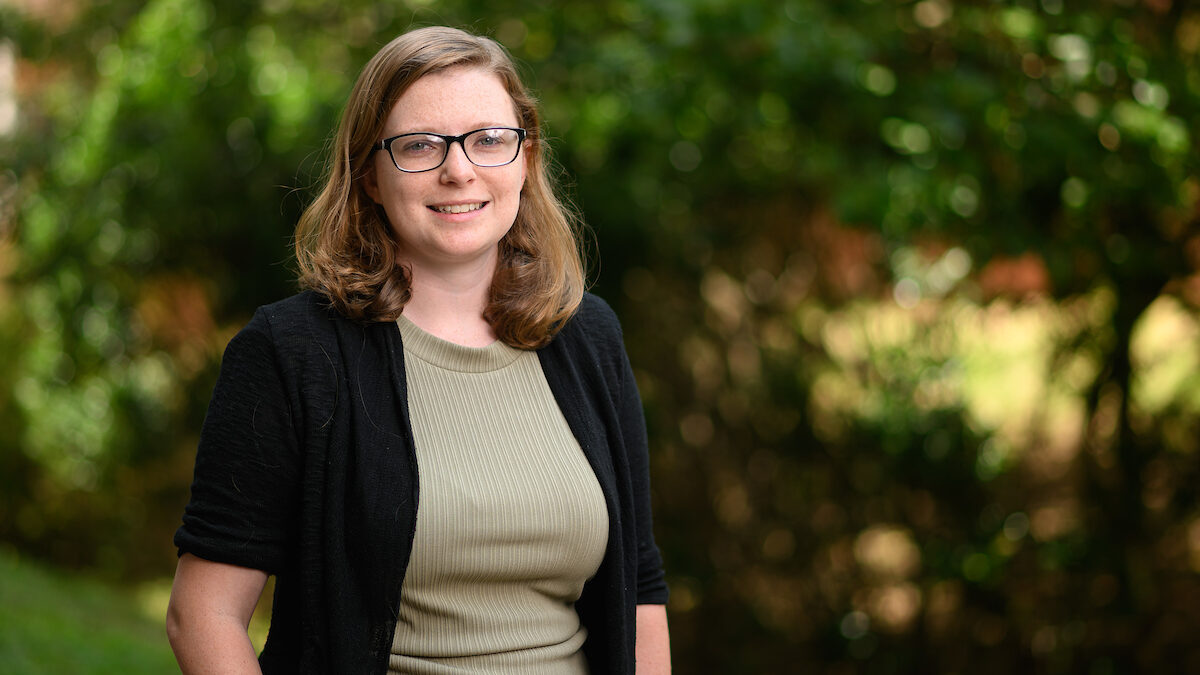
CONGRATULATIONS IN ORDER. Staff member Kelsey Mills earned the highest honor a state employee can receive: the Governor’s Award for Excellence. Mills has been instrumental in designing and implementing new GIS solutions, pig movement data analysis and disease-tracking systems that have greatly improved her lab’s ability to monitor disease outbreaks and respond to them in a timely and effective manner.
Alumni
TAYLOR’S WAY. Dr. Taylor Gregory is the Greensboro Science Center’s new vice president of animal health and a member of the NC State Veterinary Medicine Class of 2021. She took an unconventional path through zoological medicine by following her heart, her love of snow leopards and, by her admission, her own stubbornness.


